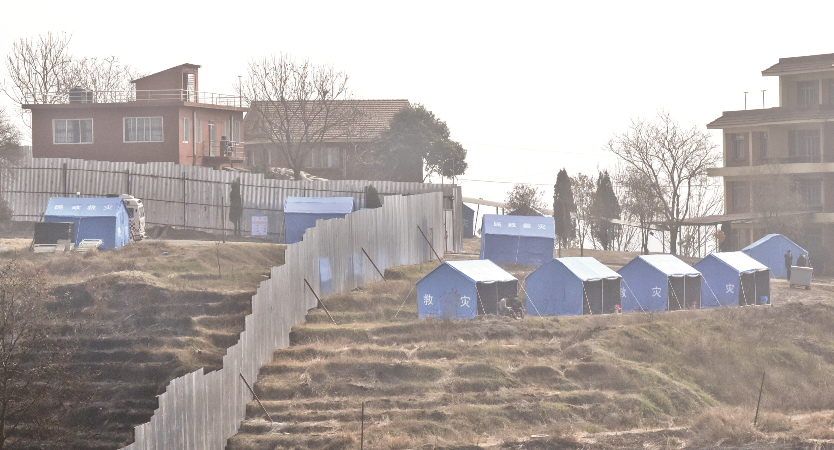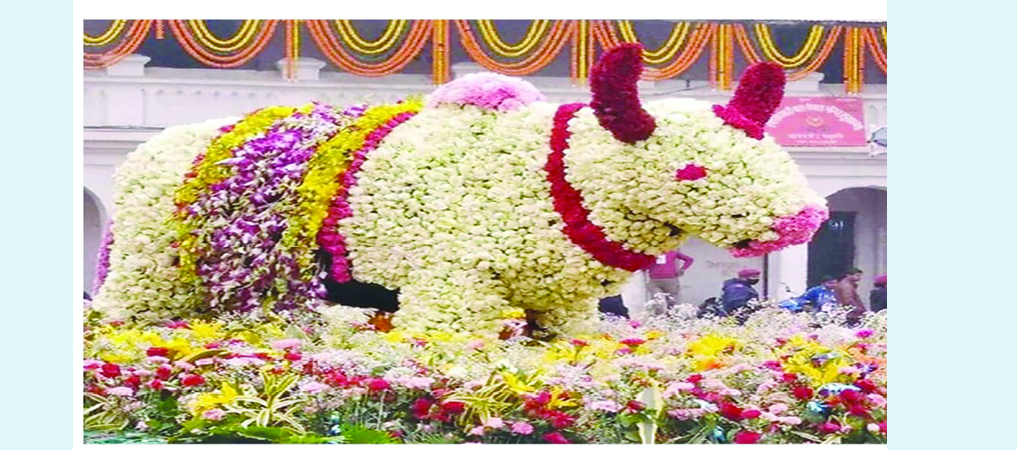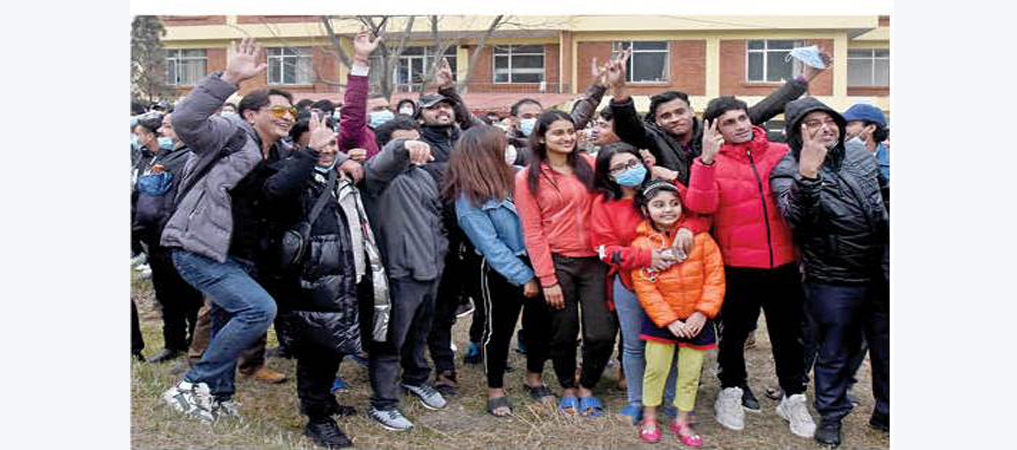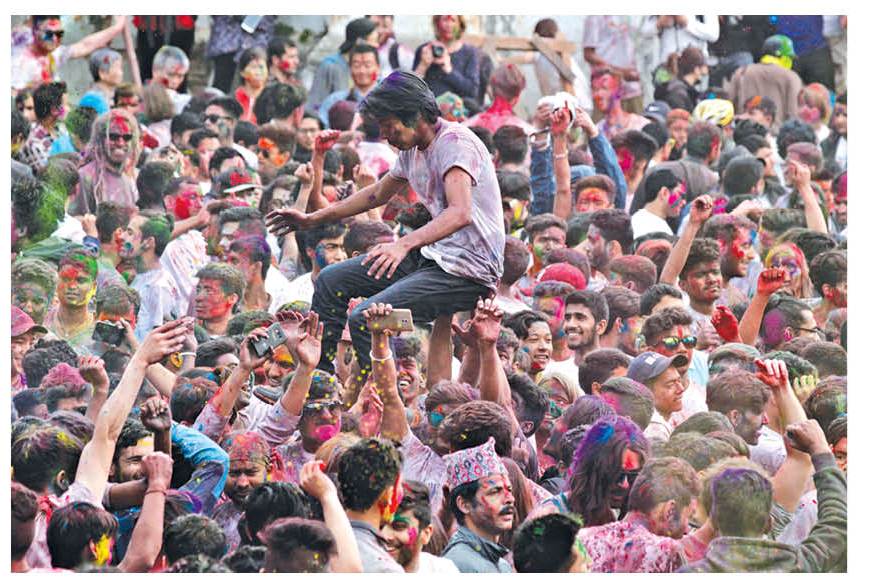Indian media stoop too low to undermine Nepal-China ties

By Sampada Anuranjanee Khatiwada, Kathmandu, July 10: Objectivity, fairness and credibility are the fundamental principles of ethical journalism but some Indian media seem to have kept these principles and code of conduct at bay while catering ‘news’ to the public.
On July 7, a mainstream Indian news channel named ‘Zee Hindustan’ premiered a questionable news report unnecessarily sensitising the meetings between Prime Minister KP Sharma Oli and Chinese Ambassador to Nepal Hou Yanqi. Various fictitious allegations and personal comments were made on both, PM Oli and ambassador Hou, in the news report.
Likewise, the Times of India, apparently one of the significant print media of India, published an editorial titled ‘Oli’s political woes’ with insulting illustration on PM Oli’s picture.
The ultimate aim of journalism is to provide fact-based, verified and credible news to the consumers. But the way the Indian media are portraying Nepal-China relation is no less than a malicious distortion.
The hoax created by the Indian media has also been condemned by the Nepali leaders.
“The unrestrained publicity by Indian media has crossed all limits. Stop this nonsense. We are all united for protection of our national sovereignty and integrity. We will not make the policy of fulfilling vested interests successful here,” tweeted Narayankaji Shrestha ‘Prakash’, spokesperson of the ruling Nepal Communist Party (NCP).
Likewise, Minister for Culture, Tourism and Civil Aviation Yogesh Bhattarai tweeted, “The news and comments made on Prime Minister KP Sharma Oli, Nepali leaders and Nepal makes me believe that the eastern civilisation is being ridiculed.”
Nepali leaders Pradeep Nepal and Upendra Yadav, among others, have also spoken against the Indian media.
Journalists have said that hyping Nepal’s politics and international relations in a ridiculously negative light has raised a huge question mark on credibility of the Indian media per se.
Talking to The Rising Nepal, senior journalist, Dhruba Hari Adhikari said, “News should always be fact-based and not speculative. But the Indian media are far away from being fact-based.”
“Had the news about Nepal that is being disseminated by the Indian media been factually correct, it would have been okay. The recent news reports about Nepal-China relations that are being floated around the Indian media are not substantiated by facts,” said Adhikari.
He said that the Indian media’s reporting about Nepal seemed to be a propaganda driven from official government agencies. The news appears to be presented in an organised manner to misinform people, added Adhikari.
He said that spreading deceptive news would only erode the credibility of the Indian media. “The readers/viewers must be watchful while consuming news catered by the Indian media. We should understand that the news is being published with a motive to misinform people and consume the news with a lot of suspicion.”
Likewise, former president of the Federation of Nepali Journalists, Bishnu Nisthuri, said, “The Indian media are not abiding by the standards and fundamental principles of journalism. The way they are reporting Nepal-China relations cannot be called ‘journalism’. This is utter misuse of media and injustice to the profession of journalism.”
“They are damaging their own reputation,” he said. “Having a sound relation is a natural characteristic of a sovereign nation. There’s no need of distorting simple issues like an official meeting between the PM and the ambassador. This only destroys people’s trust in media.”
Similarly, Govinda Acharya, President of FNJ, said, “Making baseless allegations and rebuking on internal affairs of an independent, sovereign nation in the name of journalism cannot be called ‘news’. This is another disgusting move of Indian journalism, which is wrong on diplomatic level as well.”
Acharya said that the government should take action against all this via diplomatic channels. Such Indian media which are disseminating speculative news must be banned in Nepal, added Acharya.
It seems that many Indian media have yet to learn from how their presentation and dissemination of news during 2015 earthquake in Nepal was sniffed and the people in Nepal had even started #BackoffIndianmedia on social media like twitter.
Recent News

Do not make expressions casting dout on election: EC
14 Apr, 2022
CM Bhatta says may New Year 2079 BS inspire positive thinking
14 Apr, 2022
Three new cases, 44 recoveries in 24 hours
14 Apr, 2022
689 climbers of 84 teams so far acquire permits for climbing various peaks this spring season
14 Apr, 2022
How the rising cost of living crisis is impacting Nepal
14 Apr, 2022
US military confirms an interstellar meteor collided with Earth
14 Apr, 2022
Valneva Covid vaccine approved for use in UK
14 Apr, 2022
Chair Prachanda highlights need of unity among Maoist, Communist forces
14 Apr, 2022
Ranbir Kapoor and Alia Bhatt: Bollywood toasts star couple on wedding
14 Apr, 2022
President Bhandari confers decorations (Photo Feature)
14 Apr, 2022











